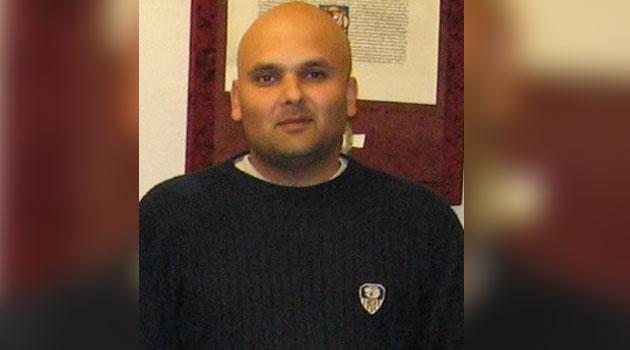New vice-chair of the Czech Govt Romani Affairs Council: Problems must be addressed, especially in difficult times

Jan Husák has been appointed the new Vice-Chair of the Czech Government Council on Romani Community Affairs. He has replaced Martina Horváthová, who has resigned her membership and her office because of the scandals surrounding Czech Prime Minister Andrej Babiš, who chairs the council.
“Personally, I comprehend her stance, but at this moment I am convinced that people’s problems must be addressed irrespective of the times we are in, and even more so during difficult times,” Husák said in a statement. The full translation is below.
Statement by Vice-Chair of the Czech Government Council on Romani Minority Affairs Mgr. Jan Husák, for the civil society section, on his appointment
I became a member of the Czech Government Council on Romani Community Affairs at the beginning of this year, and I learned I had been nominated for Vice-Chair in May. I have not yet received an appointment letter, but the head of the office did call to inform me that my appointment letter had been signed.
In that context, a heretical thought struck me. If I were to stubbornly insist on formal, written confirmation of my appointment, then at this moment I would not have to associate my membership on the Council with the position of Vice-Chair. That conclusion could be regarded as a funny one – and it is also possible to consider the professional support provided to the civil society members of the Council to be bitterly funny, as in some contexts it has been connected with an overly formalistic approach that I consider to be just one of the barriers to the Council being able to work more effectively.
Optimizing the relationships between members of the Council and representatives of the state administration is one of the primary tasks to which I will dedicate my attention and efforts.
Here I will permit myself a few words about who I am (within the bounds of polite discourse). I was originally a trained electrician. However, I have always been inclined to work with people directly. That’s why I decided to become a distance learner in a secondary school. At that time I was working shifts at the Ceramic Works in Teplice and I already had a family. After five years of study, I got to college, first at Masaryk University in Brno and then at the Faculty of Education in Ústí nad Labem.
I began my professional career working directly with people in the nonprofit sector. I began doing field work with adults, then I worked with children, managed several services, worked with foreign nationals as well, and wrote projects.
I have also worked as a bureaucrat. In the beginning I was assistant to the Mayor of Ústí nad Labem, then Coordinator for Ethnic Minorities and Head of the Concept Department at the Strategic Development Division. I have been involved with different Working Groups at the Czech Education Ministry and Czech Labor and Social Affair Ministry, an adviser and external co-worker for nonprofit organizations, I lecture with a particular focus on social policy, and for roughly 10 years I have been an external instructor at the Department of Management and Supervision in Health and Social Care Organizations at Charles University in Prague. There is certainly more to say, but it’s not important.
I have taken over the Council at a difficult time. I know about the barriers my predecessor, Bc. Martina Horváthová, had to face, and at the same time I respect the steps that she began to strengthen the Council’s activities and make them more visible. The reasons why she has left and her relationship toward the chair of the Council, Ing. Andrej Babiš, are no secret. Personally, I comprehend her stance, but at this moment I am convinced that people’s problems must be addressed irrespective of the times we are in, and even more so during difficult times.
For those who ask what my priorities are, I must strictly separate my personal interests from the aims and interests of the other Council members. I will subordinate my own aims to those that are developed, at a minimum, from our consensus. I am in the same boat as the other Council members. I am not a lone wolf – I want to be a dignified team player and I expect the same from all partners.
The powers of the Vice-Chair are delineated by the Council’s statutes. Nevertheless, my personal aims in terms of my own Council membership are especially associated with securing professional backup and support for the activities of the Council’s civil society members and with creating the conditions for dignified, effective collaborations with all stakeholders who are contributing or will contribute to fulfilling the tasks that have been or will be established, and not just in the area of policies impacting Romani men and women. In this context I would like to forecast that it will be a personal endeavor of mine to at least provoke expert debate with respect to the effectiveness of the measures in place in the area of those inclusion and integration policies that are actually not proving very effective and that therefore require some revision.
I also perceive that I have been entrusted with the necessity of bringing people together to create our crucial priorities, to be a polite but strict negotiator, and to look for and offer solutions that will prove permanently correct, effective and feasible. Those are the basic priorities for my assuming the position of Council Vice-Chair.
